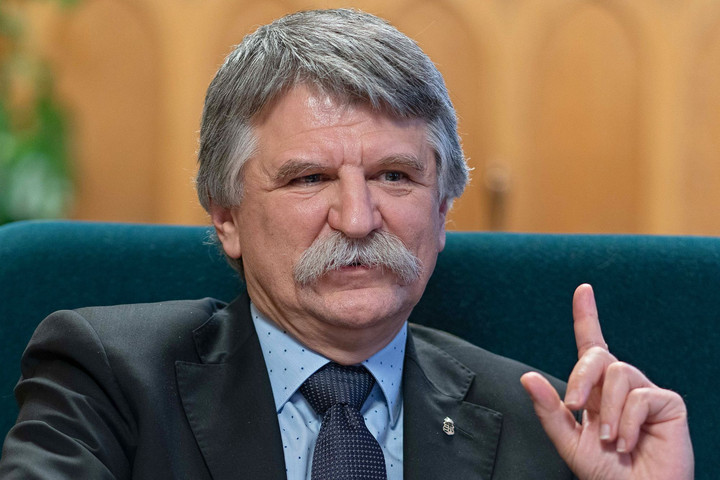By UME
The illegitimate influence of social media and background powers is a threat, says László Kövér, spokesman for the Hungarian parliament
Social media and the spread of fake news undermine public confidence, polarize societies and are a means of manipulation, said the President of the Hungarian Parliament László Kövér on Monday at a conference of speakers of the European Union. The conference was chaired by the presidents of the two chambers of the German Bundestag, the Bundestag and the Bundesrat, and is part of a one-year series of events aimed at discussing the future of the European Union.
Kövér said that the handling of the series of conferences, which will run until spring 2022, with the participation of EU institutions, member states, local authorities and EU citizens, gives the impression that the whole process is a spectacle, with a ready-made scenario and a predetermined outcome. He emphasized that it is not the European Parliament, the European Commission or the European Council that has the strongest democratic legitimation in the EU, but the national parliaments.
Kövér stressed that he agreed with his colleagues who were concerned about the “polarization of politics”. As he said, the reason the split is because “we have lost trust in one another”. He added that trust should not be further undermined and “we have to show that we are interested in each other’s opinion”. The spokesman for the Hungarian parliament emphasized that a decision must be made as to whether censorship in the online area should be accepted or rejected without democratic legitimation and manipulation through fake news.
He added, however, that “the European left, concerned about the threats to democracy and the online sphere”, subscribes to the old Bolshevik principle that “the enemies of democracy do not belong to democracy” and “they do so” who want to determine who the enemies of democracy are ”.
In his opening speech, Bundestag President Wolfgang Schäuble (CDU) emphasized that the growing influence of the Internet, social media companies and the power concentrated in large online companies is a challenge for representative democracy and has a major impact on the most important institutions of representative democracies , the parliaments, have.
He said that social media giants that rely on algorithm-based management of people’s attention have fundamentally changed the public sphere. Traditional media are losing their filtering and mediating role, and the social media they are replacing with “pockets of public opinion” help spread hatred and misleading information and divide society.
The “common space of shared experience and debate”, which is essential for maintaining democracy in an increasingly diverse society, is falling apart, according to Schäuble.
Source: Magyar Hírlap

